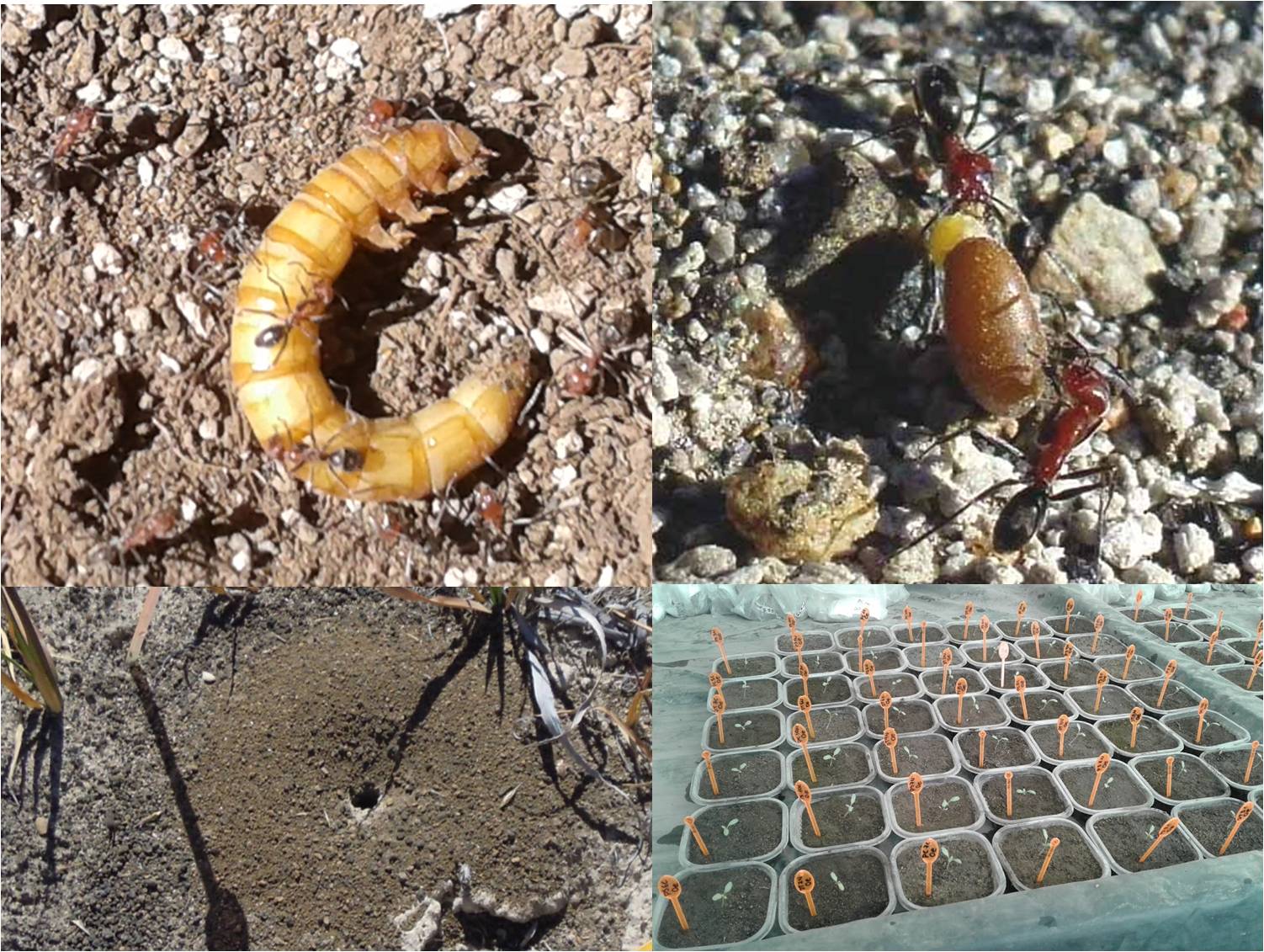The provision and continuity of several ecosystem services are currently threatened by land use, agriculture practices, deforestation, habitat fragmentation, climate change and biological invasions among other factors. Thus, there is an urgent need to identify and study organisms which provide one or more of these services in order to encourage their conservation and thus, to assure the continuity of their services. Ants play important roles in ecosystem functioning so they have a high potential for providing ecosystem services. However, except for a few species which have been intensively studied (e.g., leaf-cutters) very little is known of the function of the more than 12500 species inhabiting terrestrial ecosystems. The aim of this project is to study the functional role of ants in arid areas of Patagonia, especially those which may be important in the provision of ecosystem services. We are studying ant functions related to both supporting and regulating services. In particular, we focus on the effects of ants on (1) soil nutrient concentration, (2) organic matter decomposition, (3) plant-pollinator interaction, (4) seed dispersal, and (5) their role as arthropod community regulators. The results of this project will allow to value ecosystem services provided by ants, give tools to restore degraded areas and provide information to evaluate the potential use of ants in pest control favoring smallholders and human health.
Ecosystem services provided by ants and their implications for biological control and ecological restoration

